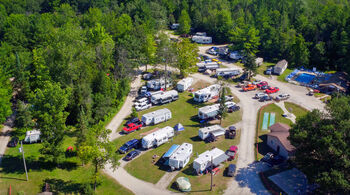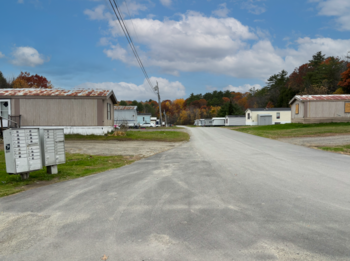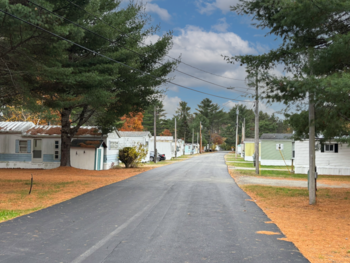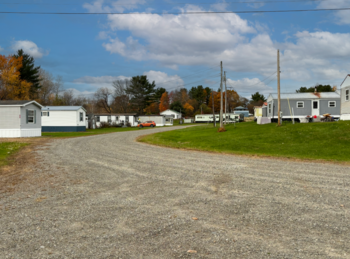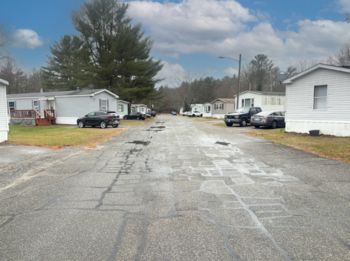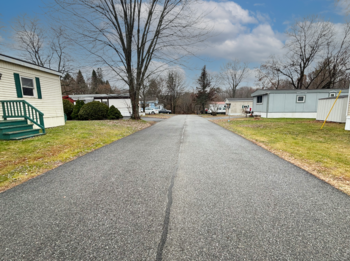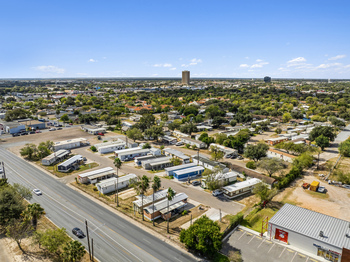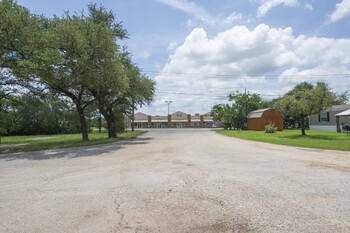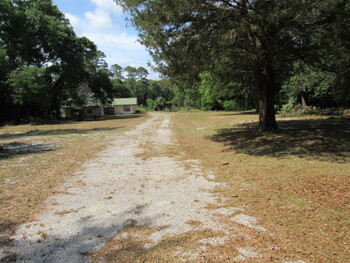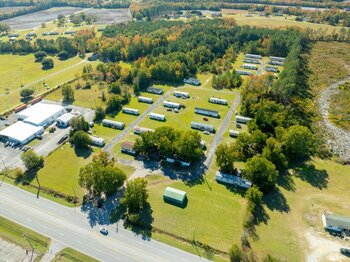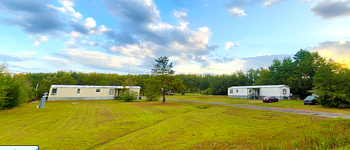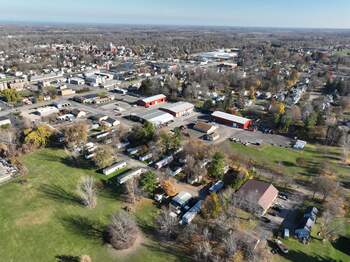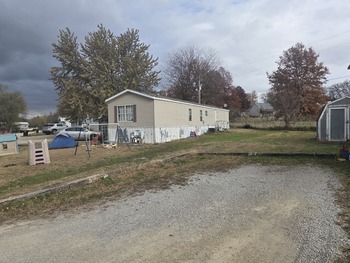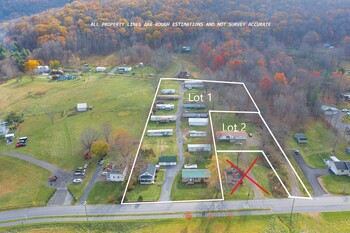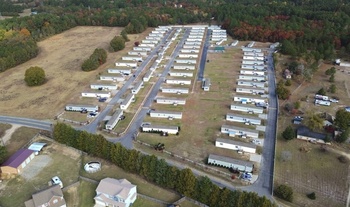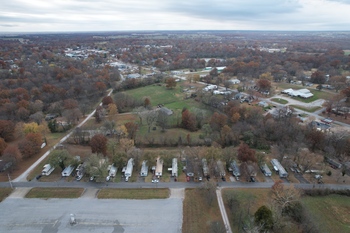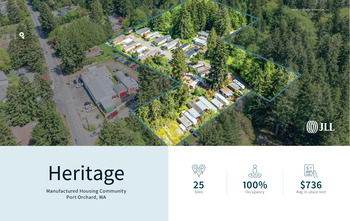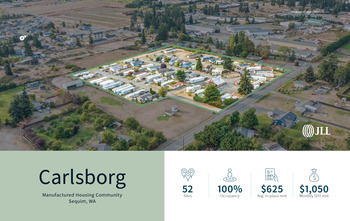The Largest Owners of Mobile Home Parks
Article Featured
As interest rates rise and real estate investing becomes more competitive, mobile home parks have emerged as an unusual yet promising asset class. With increasing housing prices and ongoing demand for affordable living options, these parks have attracted the attention of various major investors.
In this article, we shed light on those at the forefront of this unique real estate segment, the largest owners of mobile home parks. We'll explore who they are, their investment strategies, and the impact of their ownership.
Who are the Largest Owners?
Zell / Equity Lifestyle Properties
Founded by the late real estate mogul Sam Zell, Equity Lifestyle Properties is one of the largest owners of mobile home parks in the United States. Founded in 1993 and based in Chicago, it has capitalized on the growing need for affordable housing, amassing a portfolio of over 300 properties.
Sam Zell, often considered a pioneer in the real estate investment world, recognized the potential of this often-overlooked sector early on.
While widely recognized for his investments in apartments and office buildings, his strategy focused on acquiring and improving mobile home parks, maximizing their value by providing high-quality, cost-effective living solutions for thousands of residents.
This approach has yielded substantial financial returns and significantly increased access to affordable housing amidst the affordable housing crisis in many regions.
However, residents tell a different story than the shareholders, as is often the case. More on that shortly, when we look at the impact of corporate ownership in mobile home parks.
Sun Communities
Another major player in the mobile home park sector is Sun Communities, founded by Milton M. Shiffman in 1975 and based out of Southfield, Michigan.
The company initially began as an operator and manager of mobile home parks and slowly shifted its focus into ownership as part of a strategy to generate more profit. They currently own and operate over 300 mobile home communities in 26 states.
The company emphasizes the importance of a "neighborhood feel" and has invested heavily in its parks, focusing on infrastructure and amenities like swimming pools, clubhouses, playgrounds, and other recreational facilities.
RHP Properties
RHP Properties, founded by Ross Partrich in 1988, has become a leading figure in the mobile home park industry. Based in Farmington Hills, Michigan, RHP Properties is currently the largest privately-held park owner in the United States, boasting a portfolio of over 370 communities throughout the US.
In contrast to many of their competitors, RHP Properties has positioned itself as a 'value-driven' owner. Their mission to provide clean, safe, and attractive communities to residents has led to significant investments in improving their parks' infrastructure, security, and amenities.
Rather than building like most of their competitors, RHP focuses on the acquisition of existing mobile home park communities. This approach has resulted in consistent growth for the company and a reputation for quality living spaces at an affordable price point.
Does Warren Buffet own mobile home parks?
Berkshire Hathaway is at the top of many investing categories, so the question often arises in the mobile home investing space.
Warren Buffet does not currently own any mobile home parks, although he has invested in the sector. In 2003, Berkshire Hathaway acquired Clayton Homes, one of the largest manufacturers of manufactured homes. Clayton Homes also owns the two largest mobile home financing companies, 21st Mortgage Company and Vanderbilt Mortgage.
So, while Buffet and Berkshire Hathaway don't own or invest in parks, they hold significant influence in the mobile home park investment arena.
The Effects of Large-Scale Ownership on the Market
Market Control
Large-scale ownership allows major players like Equity Lifestyle Properties, Sun Communities, and RHP Properties to influence market prices significantly. Their vast portfolios enable them to set and raise rental rates, often resulting in higher resident costs.
In fact, one of the most significant complaints from residents is the near immediate rent raise when a new, large-scale owner takes over.
Quality and Standards
Large owners can invest in park infrastructure and amenities with their extensive resources. This enhances the living conditions within these communities and sets a benchmark for quality standards across the industry.
Investment Attraction
The success of these major investors in the mobile home park sector has attracted further investment from large competitors and smaller-scale local investors looking to move into the industry.
Courses and training from established investors have popped up, offering to teach and train newbie mobile home park investors on how to get started in the industry. While some areas may be saturated and tough to gain a foothold, many areas have gone unnoticed, allowing new investors to test their strategies.
Potential Negative Effects of Large-Scale Ownership
While large-scale ownership in the mobile home park industry has brought about certain advantages, it's not without its potential adverse effects.
Here are a few considerations:
- Limited Competition: With a handful of major players controlling a significant portion of the market, competition can be limited, potentially stifling innovation and the development of smaller businesses within the sector.
- Affordability: While large-scale owners have the capacity to make substantial improvements to their parks, these enhancements often come at a cost to the residents. In many instances, rental price hikes have made living in these communities less affordable, contradicting the initial appeal of mobile home living.
- Residential Stability: The investment-driven nature of these large-scale owners can sometimes compromise the stability of long-term residents. When a park is sold, residents, particularly those on lower incomes, may face uncertainty regarding continuity of tenancy and potential rent increases.
- Community Disintegration: As the focus shifts from providing affordable housing to maximizing profit, there's a risk of these communities losing their unique character and sense of togetherness. The drive for profitability might lead to changes that disrupt the close-knit community ethos often found in mobile home parks.
While large-scale ownership has undoubtedly shaped the landscape of the mobile home park industry, it's clear that the impact of this ownership structure carries a mix of both positive and negative effects.
Controversial Changes in Monthly Lot Rent and Market Rates
When a large company acquires a smaller independent mobile home park, several changes ensue, often leading to a significant transformation of the park's operations and environment. One immediate effect is the potential hike in monthly lot rent.
Large-scale owners, driven by profit motives, may increase the rent to recoup their investment and fund improvements in the park. Such price hikes, while contributing to the appreciation of park assets, can strain residents, especially those on a limited or fixed income.
The corporate approach of larger entities may lead to stricter enforcement of rules and regulations which were previously on the books but rarely enforced.
Many residents mention the new, corporate approach can alter the laid-back and community-oriented vibe characteristic of small independent parks.
On the positive side, large companies often have the resources to invest in infrastructure improvements and amenities, such as upgraded roads, new playgrounds, or community centers, enhancing the overall quality of life within the park.
However, these changes can also lead to gentrification, pushing out long-term residents who can't keep up with the increased costs. Consequently, while the park may visually improve, the sense of community may be disrupted, changing the social fabric of the park.
Ultimately, the acquisition of a small independent mobile home park by a large company can have both beneficial and adverse impacts, underscoring the complexity of this ownership transition.
Why are mobile home parks attractive for large real estate investment companies?
Rents rarely go down.
Mobile home parks are an attractive investment for large real estate companies due to their low entry costs and consistent cash flow.
Unlike other investments, lot rent rarely goes down in mobile home parks. This means investors can rely on consistent cash flow regardless of market conditions. Additionally, mobile home parks tend to have long-term tenants with less turnover than multifamily or commercial properties.
Tenants rarely leave
Another factor that makes mobile home parks an attractive investment is that tenants rarely leave. This is primarily due to the high costs associated with moving mobile homes.
The expenses related to unhooking utilities, hiring professional movers, and installing the home at a new location can range from several thousand dollars to over $10,000. Additionally, the availability of vacant lots in other parks is often limited.
Due to these factors, many tenants opt to stay put despite rent increases, providing mobile home park owners with a steady and reliable income source.
Maintenance is minimal because tenants are responsible for their homes.
Finally, owning a mobile home park requires minimal maintenance because tenants are generally responsible for the upkeep of their own homes.
This includes painting and minor repairs, allowing owners to spend less time dealing with tenant requests or carrying out maintenance work.
Ultimately, these factors have contributed to the attractiveness of mobile home parks as an investment for larger entities looking for consistent cash flow.
Conclusion: Can smaller investors compete with large Mobile Home investment companies?
In conclusion, the shift towards large-scale ownership in the mobile home park industry presents a complex landscape of benefits and drawbacks.
The financial attractiveness of these parks for larger entities has led to significant changes, including improved infrastructure and stricter regulation enforcement. While these changes can enhance the quality of life within parks, they can also lead to increased rent, gentrification, and potential disruption of community ethos.
An old adage applies if a smaller investor is having trouble establishing a foothold or competing with the largest mobile home park companies. If you can't beat 'em, join 'em.
Two of the three largest investors in the space are publicly traded, making it possible for small investors to purchase shares and be a part of the larger ownership group.
